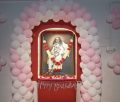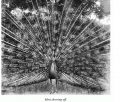Review: Perspectives: The Timeless Way of Wisdom

Title:Perspectives Vol-I
Author: Paul Brunton
Pages-392; Price Rs.395
New Age Books,
Naraina Phase-1
New Delhi- 110028 (India)
Reviewer: M Rama Rao
Paul Brunton needs no introduction. The world knows him as the British journalist turned spiritual seeker who had introduced the sage of Tiruvannamalai, Shri Ramana Maharshi to the West. And he unreservedly subscribed to the Maharshi’s saying, ‘When heart speaks to heart, what need is there for words?’ Yet, by the time he died in Switzerland in 1981 Brunton had left behind thousands and thousands of words which are now read and re-read not merely to appreciate his understanding of the Indian thought but to get a deeper insight into the Eastern mind, so to say.
‘Perspectives’ with its catchy sub-title ‘The Timeless Way of Wisdom…’ is the first volume of the note books Paul Brunton had left behind. Paul Brunton Philosophic Foundation and the Wisdom’s Goldenrod Centre for Philosophic Studies are pouring over some 7000 pages of notes, which in a way is the ‘Summing Up’ of the greatest spiritual harvest. Brunton had withheld these notes for publication after his death. That could be because he constantly revised his notes – a minimum of three well defined stages for a given piece of material.
He used to first jot down in long hand while an intuition was fresh and vital. These pages were later organised by topic, typed, and filed as Rough Ideas. The first revision became the Middle Ideas. It was followed by a second review and literary revision, after which the ‘final’ material was typed and put into notebooks titled ‘Ideas’.
‘To write a book that will sustain a single theme through three hundred pages is not really my way’, Brunton, PB to his admirers, said once by way of an explanation to his way of writing. ‘I prefer to write down a single idea without reference to those which went before or which are to follow later, and to write it down in a concentrated way. …I have not the patience to go on and on, telling someone in a hundred pages what I could put into a single page’. His ideas on the unfathomable ‘functioning wisdom’ took the notebook shape over thirty years – a period which broadly coincided with his disappearance from public view to retire into complete solitude in Switzerland.
The Volume One is dedicated to ‘that Sage of the Orient at whose behest these pages were written’, with the author assuring the ‘one incredibly wise and ceaselessly benevolent’ that ‘somewhere in the deep places of my heart, I have gathered all my desires into a little heap and offered them all unto the Nameless Higher Power’.
PB’s credentials as an exponent of Eastern thought were established by his very first book ‘A Search in Secret India’, which is a chronicle of saints and sadhus he had met during his travels across India, particularly the snow peaks of Himalayas. His ‘Search for The Over-self’ is considered as a very significant book as it was one of the first books to introduce meditation in the west.
PB’s credentials as an exponent of Eastern thought were established by his very first book ‘A Search in Secret India’, which is a chronicle of saints and sadhus he had met during his travels across India, particularly the snow peaks of Himalayas. His ‘Search for The Over-self’ is considered as a very significant book as it was one of the first books to introduce meditation in the west.
There was gradual evolution in his thinking. It is clear from his eleventh book, which is titled, ‘In ‘The Secret Path’. It is probably the shortest and more widely read of his books. It assures the reader that to gain access to one’s own soul is not such a rare feat as it may seem and adds that everything depends on stilling the tumult of the mind and practicing mental quiet. ‘Thought control is hard to attain. Its difficulty will astonish you. The brain will rise in mutiny. Like the sea, the human mind is ceaselessly active. But it can be done,’ says PB, who couldn’t hide his surprise when he first saw Sadhus without warm clothes during the peak Himalayan winter. By 1952 he published in all 13 books as an East-West bridge, interpreting oriental mysticism to the West.
The author introduces the reader to Perspectives with the observation, ‘ If you feel that the principles touched on in these pages are true, then remember that the greatest homage you can pay to Truth is to use it. Spiritual peace is given as a prize to those who wisely aspire, and who will work untiringly for the realization of their aspiration.’
While on ‘Elementary Meditation’, PB describes meditation as an effort. ‘In the first stage, resolute will is required to overcome and banish the eager intruders, who would destroy the chances of success. Meditation is successfully accomplished when all thoughts come to an end, and when the presence of Divinity is felt within this emptiness’.
The only men who will make something worthwhile of philosophy are the men who have already made something worthwhile of their personal lives, he observes at one stage (Page 70). He makes clear that philosophy doesn’t teach people to make their minds blank, doesn’t say empty out all thoughts, be inert and passive. It teaches the reduction of all thinking activity to a single seed-thought and that one is to be interrogative like ‘What Am I?’ or affirmative like ‘The godlike is with me’.
And goes on to say, ‘Philosophy teaches that if you accept life, donot accept blindly. Seek the lesson, the instruction, the education, and the karmic reason and cause behind it. Add knowledge to your faith’. (Page 157)
Love thy neighbour is neither an abstract concept nor a call for sentimental, emotional and hail-fellow-well-met attitude which the Church teaches, according to him. The correct meaning of this age-old ethical injunction, he says, is ‘practice compassion in your physical behaviour and exercise goodwill in your mental attitude towards your neighbour. Everyone can do this even when one cannot bring oneself to like one’s neighbour. ‘Therefore this injunction is not a wholly impracticable one as some believe, but quite the contrary’.
PB invokes Sufism and Vedanta, Upanishads and Bhagavad-Gita, Buddhism and Zen Buddhism, Rama Krishna and Confucius, to say that the seeker must go all out for self-illumination with single minded pursuit. To him, Gandhi is as self-realized mystic as his contemporaries like Ramana Maharshi and Aurobindo.
Then why is that Gandhi’s view of world war was so widely different from Sri Aurobindo’s if both are divinely inspired men? It is because, ‘in Gandhi we find a perfect illustration of the defects of ordinary mysticism, of the insufficiency of its spiritual self-realization, and of the need for philosophical mysticism…he is a genuine saint turned to genuine service of humanity. But he has carried into that service the unbalance, the fanaticism, and the impracticality which marks so many saints through out history. Perfect mystics are not the same as perfect beings. They are liable to error’. (Page 205)
Talking about advanced contemplation, PB observes: “We must withdraw every thing and thought from the mind except this single thought of trying to achieve the absence of what is not the Absolute. This is called Gnana Yoga: ‘Neti, Neti’ (It is not this), as Sankara called it. And he must go on with this negative elimination until he reaches the stage where a great Void envelops him. If he can succeed in holding resolutely to this Void in sustained concentration — and he will discover it is one of the hardest things in the world to do so — he will abruptly find that it is not a mere mental abstraction but something real, not a dream but the most concrete thing in his experience. Then and then only can he declare positively, ‘It is This. For he has found the Overself.” (Page 327)
It is difficult to resist giving another quote, which I liked very much. “ The statement ‘Light is God’ is meant in two senses; first, as the poetical and a psychical fact that, in the present condition of the human being, his spiritual ignorance is equivalent to darkness and his discovery of God is equivalent to light; second, as the scientific fact that has verified in its findings that all physical matter ultimately reduces itself to waves of light, and since God has made the universe out of His own substance, the light-waves are ultimately divine” (Page 377)
‘In ‘The Secret Path’, is probably the shortest and more widely read of his books. ‘Thought control is hard to attain. The brain will rise in mutiny. Like the sea, the human mind is ceaselessly active. But it can be done,’ says PB, who couldn’t hide his surprise when he first saw Sadhus without warm clothes during the peak Himalayan winter.
A careful reading of Perspectives makes one believe that PB subscribes to the concept of a master or Guru to help a seeker, particularly in the early stages. He also agrees with the view that power of healing is carried forward from former births and functions on different levels. Nonetheless, he slips in the caveat, a healthy one so to say, when he observes ‘all healers should know their limits, their limitations’. In the same breath, he criticizes the medical profession ‘for failing to enter into a dialogue with the healers, for they would learn much to their own profit and to the improvement of their professional help if they adopted a humbler attitude towards the unorthodox healers’.( Page127)
To conclude on a personal note, I first heard about Paul Brunton during a visit to Meherabad (Ahmednagar, Maharashtra) in 2008. Anna Khandale, a scholar and Marathi writer of repute, who is also one of the caretakers of Meher Baba Samadhi, said, Paul Brunton visited Meher Baba in 1929. By then, Meher Baba was already into His silence and was using an alphabet board for communications. Meher Baba was in seclusion at that time at the Panchvati (a cave like structure constructed on the slopes of Meherabad Hill since closed). He had no desire to see Brunton but agreed to give an interview, saying, ‘See how Maya obstructs my work! I did not wish to see anyone and now my work is being impeded’.
The purpose of Brunton’s interview was to determine if Baba was a genuine Master. The interview was conducted over two-days, November 23 and 24 and covered His mission, His Universal Message, India’ future and His silence. ‘I know that I am the Avatar’, Baba told him and added: ‘I shall break my silence and deliver my message only when there is chaos and confusion everywhere,… when both East and West are aflame with war…!’
Brunton inquired: “Do you know the date of this war?” Baba replied, “The date is not far off. And Brunton felt it was a ‘terrible prophecy’. After the interview was over, he wondered why Meher Baba was living inside a stone cave when there was a well-structured building at Meherabad.
Shortly afterwards, Brunton met some Parsi priests in Nashik and elsewhere, changed his views on Meher Baba and declared Him ‘a clever Charlatan’.
‘One form of delusion from which quite a number of cult-leaders have suffered is the belief that they are a reincarnation of Christ. Meher Baba, the Parsee Messiah, and Father Divine, the Negro Messiah, have shared it. No philosophic student need be taken in by this fancied revelation’, he wrote in Search of Secret India.
In a chapter titled , Delusions and Painful Awakenings, in his note book, Brunton wrote, “When therefore we hear of a ‘Perfect Master’ in Meher Baba, about whom everything was sadly imperfect, and find thousands of followers accepting him as such, including Western followers, we may understand why philosophy, not less than science, warns against credulity and gullibility”.
When Brunton’s views were brought to his notice, Meher Baba expressed no surprise at the observations of ‘That Ignorant Man’. He said, “…You may take it that the result was expected, and it has happened through me. Only an hour ago, we were talking about opposition and now you hear about it. So, none of you should be anxious about it. No such rumors should disturb you. It is my game and I will see to it how it is played”.
There are at two recorded instances of Brunton’s book, ‘In Search of Secret India’ that made two skeptics close followers of Meher Baba. One is Khilnani, and the other is BN Saoji, according to Lord Meher, which chronicles the life and times of Meher Baba. Both felt Meher Baba must be a fake from what the book had stated but when they met Baba face to face, they changed their minds.
I recommend Perspectives to all Seekers of truth. – M Rama Rao
-
Book Shelf
-
 Book Review
DESTINY OF A DYSFUNCTIONAL NUCLEAR STATE
Book Review
DESTINY OF A DYSFUNCTIONAL NUCLEAR STATE
- Book ReviewChina FO Presser Where is the fountainhead of jihad?
- Book ReviewNews Pak Syndrome bedevils Indo-Bangla ties
- Book Review Understanding Vedic Equality….: Book Review
- Book Review Buddhism Made Easy: Book Review
- Book ReviewNews Elegant Summary Of Krishnamurti’s teachings
- Book Review Review: Perspectives: The Timeless Way of Wisdom
- Book ReviewNews Rituals too a world of Rhythm
- Book Review Marx After Marxism
- Book Review John Updike’s Terrorist – a review
-
-
Recent Top Post
-
 NewsTop Story
Pope Francis dies: an unconventional pontiff who sought to modernise Catholicism
NewsTop Story
Pope Francis dies: an unconventional pontiff who sought to modernise Catholicism
-
 CommentariesTop Story
India’s Migration Dilemma
CommentariesTop Story
India’s Migration Dilemma
-
 Commentaries
Crowd Management Blues
Commentaries
Crowd Management Blues
-
 Meher Baba SpeaksNews
Meher Baba Loved Them Too…
Meher Baba SpeaksNews
Meher Baba Loved Them Too…
- Commentaries Record Pentagon spending bill and America’s hidden nuclear rearmament
-
 CommentariesNews
Ides of trade between India and Pakistan
CommentariesNews
Ides of trade between India and Pakistan
-
 Commentaries
How sustainable is the rhetoric of India-China Bhai-Bhai
Commentaries
How sustainable is the rhetoric of India-China Bhai-Bhai
-
 CommentariesTop Story
New Set of Diplomatic Strains with Canada
CommentariesTop Story
New Set of Diplomatic Strains with Canada
-
 News
Ratan Tata’s Legacy
News
Ratan Tata’s Legacy
-
 Commentaries
India’s Strategic Push on the World Stage
Commentaries
India’s Strategic Push on the World Stage
-
AdSense code

















